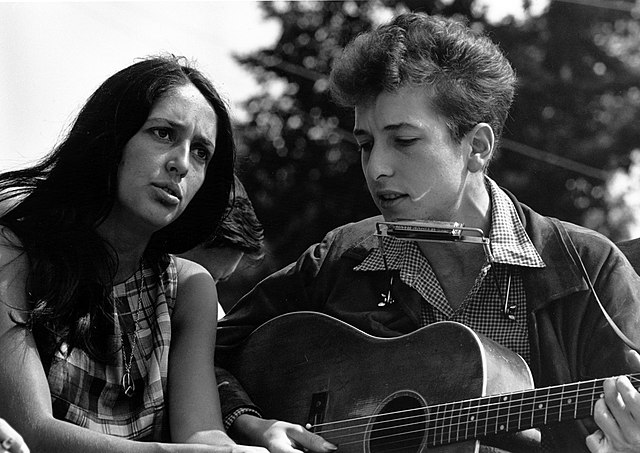Blood on the Tracks is the fifteenth studio album by American singer-songwriter Bob Dylan, released on January 20, 1975, by Columbia Records. The album marked Dylan's return to Columbia after a two-album stint with Asylum Records. Dylan began recording the album at an A & R studio in New York City in September 1974. In December, shortly before Columbia was due to release the album, Dylan abruptly re-recorded much of the material in Sound 80 studio in Minneapolis. The final album contains five tracks recorded in New York and five from Minneapolis. The album’s songs have been linked to tensions in Dylan's personal life, including his estrangement from his then-wife Sara. One of their children, Jakob Dylan, has described the songs as "my parents talking." In interviews, Dylan has denied that the songs on the album are autobiographical.
Blood on the Tracks
Bob Dylan is an American singer-songwriter. Often considered to be one of the greatest songwriters in history, Dylan has been a major figure in popular culture over his 60-year career. He rose to prominence in the 1960s, when his songs "Blowin' in the Wind" (1963) and "The Times They Are a-Changin'" (1964) became anthems for the civil rights and antiwar movements. Initially modeling his style on Woody Guthrie's folk songs, Robert Johnson's blues, and what he called the "architectural forms" of Hank Williams's country songs, Dylan added increasingly sophisticated lyrical techniques to the folk music of the early 1960s, infusing it "with the intellectualism of classic literature and poetry". His lyrics incorporated political, social, and philosophical influences, defying pop music conventions and appealing to the burgeoning counterculture.
Dylan in 2010
The Zimmerman family home in Hibbing, Minnesota
Joan Baez and Dylan during the civil rights "March on Washington for Jobs and Freedom", August 28, 1963
Bobby Dylan, as the college yearbook lists him: St. Lawrence University, upstate New York, November 1963





